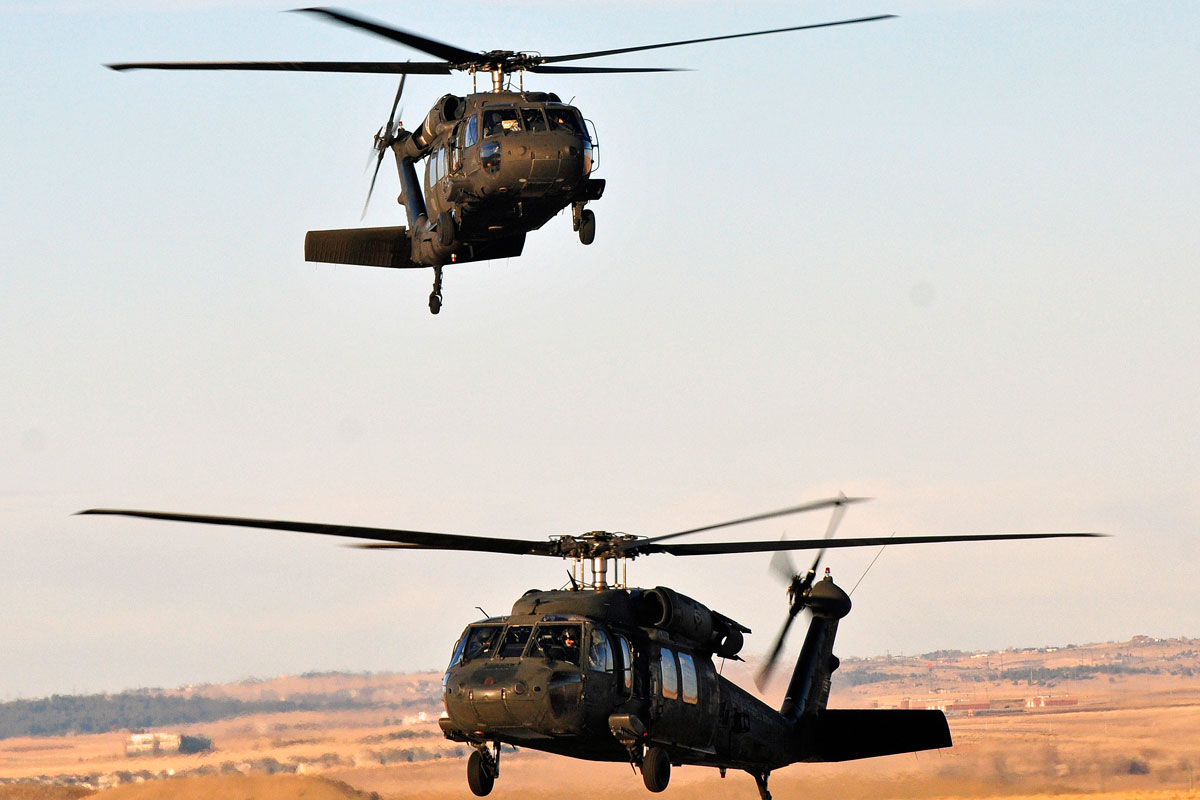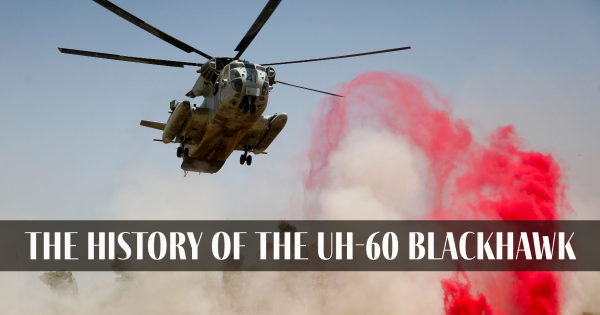Safety And Security First: Vital Action In UH 60 Helicopter Upkeep
Safety And Security First: Vital Action In UH 60 Helicopter Upkeep
Blog Article
Browsing Uh 60 Helicopter Rules and Conformity Needs

Regulatory Framework Summary
The regulatory framework controling UH-60 helicopter procedures incorporates a facility collection of standards and rules established by aeronautics authorities. These laws are created to make sure the reliable and secure operation of UH-60 helicopters in different environments. The Federal Aviation Management (FAA) plays a central role in establishing and applying these guidelines, which cover a large range of operational facets, consisting of airworthiness requirements, pilot certifications, maintenance requirements, and functional procedures.
Conformity with these laws is important for helicopter operators to preserve the highest levels of safety and operational integrity. Failing to comply with these laws can cause serious repercussions, consisting of mishaps, injuries, and regulatory sanctions. For that reason, helicopter drivers should remain notified concerning the most recent governing developments and make certain that their operations are in complete compliance with all suitable rules and requirements.
Airworthiness Assessments and instructions
In the middle of the governing structure controling UH-60 helicopter procedures, a crucial focus pushes compliance with Airworthiness Directives and conducting extensive assessments to maintain safety and security criteria and functional dependability. Airworthiness Regulations (ADs) are provided by aviation authorities to deal with hazardous conditions in aircraft, consisting of the UH-60 helicopter, and required certain actions to be taken by owners or drivers. Conformity with Advertisements is compulsory, and failing to comply with these regulations can lead to major repercussions, including grounding of the aircraft.
Regular assessments are critical to ensuring the airworthiness of UH-60 helicopters. By sticking to a stringent inspection routine, operators can detect and attend to potential problems promptly, consequently enhancing the security and reliability of UH-60 helicopter procedures.
Pilot Qualifications and Training

Pilot training for UH-60 helicopters is thorough and covers a large range of topics, including More Info aircraft systems, emergency treatments, navigation, and mission-specific training. In addition, pilots undergo simulator training to practice different emergency circumstances in a controlled environment. This training assists pilots establish the necessary abilities to handle difficult scenarios successfully.


Furthermore, recurring training and specialist advancement are necessary for UH-60 pilots to stay current with the current policies, technology, and ideal methods. By purchasing pilot qualifications and training, drivers can improve security, optimize efficiency, and make sure compliance with governing demands in the operation of UH-60 helicopters.
Functional Limitations and Demands
Pilot certifications and training function as the structure for understanding the functional restrictions and requirements linked with UH-60 helicopter operations (uh 60). These functional limitations are established to guarantee the safety of the team, passengers, and the airplane itself. Operational constraints may consist of elements such as climate condition, weight constraints, altitude restraints, and operational borders. It is important for pilots to be well-versed in these restrictions to make informed decisions throughout flight procedures. Additionally, conformity requirements, such as adhering to details flight courses, click here to read communication procedures, and emergency procedures, are essential for preserving operational safety and security and regulatory compliance. Pilots have to stay present with all functional limitations and demands via regular training, rundowns, and assesses to mitigate dangers and make sure secure and efficient UH-60 helicopter operations. By prioritizing adherence to these operational standards, pilots can boost the overall safety and performance of their missions while supporting governing criteria.
Emergency Situation Treatments and Conformity Testing
Efficient emergency situation procedures and complete conformity screening are essential parts of keeping functional safety and governing adherence in UH-60 helicopter operations. Emergency situation procedures encompass methods for numerous situations, including engine failures, fires, hydraulic concerns, and a lot more. Pilots and team members have to be fluent in these treatments to respond quickly and effectively in emergencies. Normal compliance testing ensures that the helicopter fulfills all regulative demands established forth by air travel authorities. This screening involves detailed inspections, checks, and examinations to confirm that the aircraft is airworthy and in conformity with all suitable laws.
Furthermore, conformity testing may include simulations of emergency situations to analyze the crew's reaction and the helicopter's efficiency under anxiety. By prioritizing emergency procedures and conformity screening, UH-60 drivers can minimize threats and demonstrate their commitment to safety and security and governing compliance.
Final Thought
Finally, adherence to governing framework, compliance with airworthiness regulations, pilot credentials and training, functional limitations, and emergency procedures are necessary for navigating the regulations and requirements of operating a UH-60 helicopter. uh 60. It is critical for operators to prioritize safety and security and guarantee complete conformity with all applicable policies to preserve the airworthiness and functional honesty of the aircraft
Navigating the regulatory landscape surrounding UH-60 helicopter operations demands a nuanced understanding of the complex internet of rules and compliance demands.Conformity with these policies is vital for helicopter operators to keep the greatest levels of security and operational stability.In the middle of the regulatory framework regulating UH-60 helicopter operations, an important emphasis exists on compliance with Airworthiness Directives and conducting you can try here extensive assessments to promote safety and security requirements and functional reliability.Effective emergency procedures and comprehensive compliance testing are essential parts of keeping functional security and regulative adherence in UH-60 helicopter operations. Normal compliance testing guarantees that the helicopter meets all governing demands set forth by aviation authorities.
Report this page